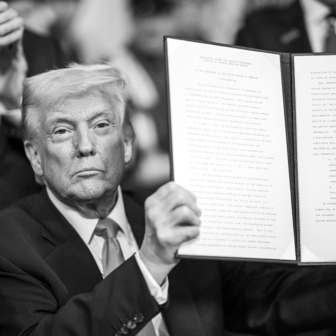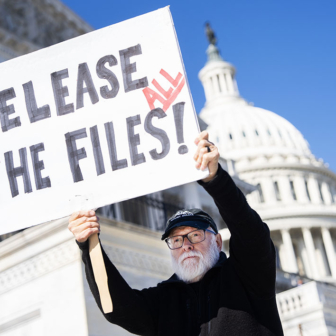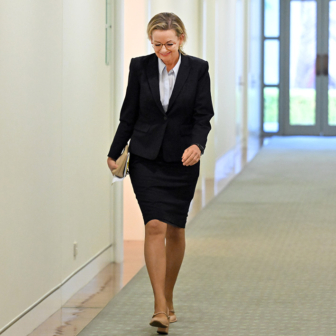Earlier this year Bob Day, a senator in the previous parliament, was in the High Court seeking unsuccessfully to overthrow Malcolm Turnbull’s changes to the voting rules for Senate elections. His challenge was based on a fear that they might make it more difficult for micro-parties (like his own Family First) to be elected. In fact – at least in the context of a double dissolution, with each state electing twelve senators instead of six – it proved easier for such parties to win places in the upper house. At the federal election on 2 July, Day himself was returned to the Senate, though only as the last of the twelve successful South Australian candidates.
Now it seems possible that he was never validly elected. Under section 44 of the Constitution, certain candidates for election to either house of federal parliament are “incapable of being chosen or of sitting.” They include anyone who “has any direct or indirect pecuniary interest in any agreement with the Public Service of the Commonwealth,” except where the interest arises merely through membership of “an incorporated company consisting of more than twenty-five persons.” The question now is whether Day has an interest in such an agreement – and, in particular, whether he had such an interest (and was therefore “incapable of being chosen”) at the time he was elected. On Tuesday it was announced that the government has asked the Senate to refer this question to the High Court (sitting as a Court of Disputed Returns), and this now seems almost certain to happen when parliament sits next week.
Earlier on Tuesday – after much vacillation – Day had resigned as a senator. But the question is whether he had ever become a senator in the current parliament. If he did become a senator but has now resigned, the resulting “casual vacancy” must be filled by the South Australian parliament, which under the Constitution is bound to choose another member of the same political party. But if he was never validly elected at all, the procedure for filling that kind of “casual vacancy” is simply irrelevant; instead there must be a recount.
Since Day was the last candidate to be elected (on the 457th count!), it may be possible to limit the recount to the final stages of counting. But logically, if he was “incapable of being chosen,” he should be eliminated from the outset. It therefore seems likely that there would need to be a complete recount, since Day’s elimination might alter the overall distribution of preferences in unpredictable ways.
Either way, the eventual outcome will probably be that he will be replaced by another representative of Family First; but this can’t be predicted with certainty. The most tantalising possibility is that Anne McEwen, formerly a senator for the Labor Party, might be re-elected on a recount.
The details of the arrangements that are said to have given Day an “indirect pecuniary interest” in an agreement with the Commonwealth government are only slowly emerging. Pursuant to his victory at the 2013 election, Day had taken his place in the Senate on 1 July 2014. But the senatorial electoral office in Gilles Street, Adelaide (previously occupied by the outgoing Labor senator Don Farrell) was not immediately available. Accordingly, Day sought to relocate his electoral office to a building to the east of the city, in Kent Town, which at that stage was owned by his family company, B & B Day Pty Ltd (significantly, an incorporated company consisting of fewer than twenty-five persons).
In October 2014 the Commonwealth agreed to take a lease of the Kent Town building, on condition that Day was to bear the cost of fitting out the electoral office (apparently to the tune of about $165,000). Moreover, the arrangement was subject to a further condition that the Commonwealth would pay no rent at least until August 2016. It appears that these conditions were imposed to allay the Finance Department’s worry that the proposed arrangement might give rise to a problem of “direct or indirect pecuniary interest.”
By the time that Day actually moved into the office, the building had been sold to Fullarton Investments Pty Ltd. But that company is said to have purchased the building with money lent to it by Day (or his company), with the result that Day (or his company) retained an interest in the property as a mortgagee. Accordingly, it will be argued that (at least at the time of this year’s election) Day still had a pecuniary interest.
Day appears to have claimed that, after this year’s election, there were further negotiations, resulting in the renewal or continuation of an “understanding” that the Commonwealth would pay no rent to Fullarton Investments. He seems likely to argue that this “understanding” is enough to negate any argument that he has (or had) a pecuniary interest.
Which of these arguments will prevail, and what other arguments might arise, will depend in part on a more precise understanding of the mortgaging and leasing arrangements, and in part on the rigour with which the concept of “direct or indirect pecuniary interest” is interpreted by the High Court.
In other cases of disqualification under section 44 of the Constitution (in particular, those involving disqualification by reason of “allegiance… to a foreign power,” or by reason of having “an office of profit under the Crown”), the disqualifying language has been strictly applied. But the concept of “pecuniary interest” has proved rather flexible. The whole catalogue of disqualifications under section 44 had been largely ignored until 1975. But in the midst of that year’s political tumult, James Webster, a Country Party senator from Victoria, was challenged on grounds of “pecuniary interest” – since, at various times in 1973 and 1974, his family company had submitted quotations and tenders, accepted offers, and entered into contracts for the supply of timber to Commonwealth departments.
A preliminary hearing of the Webster case took place before chief justice Garfield Barwick, who initially proposed to refer the issue to the full court but then resolved to decide it himself by sitting as a single judge. In due course he held that Webster was not disqualified by any “pecuniary interest.” Applying the rules of contract law relating to offer and acceptance, he held that each quotation submitted by the company was an offer; that acceptance occurred each time the government placed an order; that each such acceptance gave rise to a separate contract relating to that particular order – and that none of these separate contracts attracted the constitutional disqualification.
That decision was widely criticised – both because the final reasoning seems so technical and specious, and because in any event Barwick should have referred the matter to the full court rather than disposing of it himself. Yet his reasoning clearly reflects a legitimate view (as I have written elsewhere) that the constitutional language “is obscure and anachronistic and that its application should therefore be narrowly confined.”
The only other relevant precedent never reached the High Court at all. In June 1999 it was suggested that Warren Entsch, at that time a parliamentary secretary to the industry minister, was disqualified from continuing to sit in the House of Representatives. He held an interest in a private company, Cape York Concrete, which had won a $175,000 contract to supply concrete for an RAAF base. It was alleged that this amounted to a “pecuniary interest in any agreement with the Public Service of the Commonwealth.” Prime minister John Howard was asked to refer the matter to the High Court, but that request was refused. Instead, the House of Representatives purported to determine the issue itself, by resolving (on the motion of attorney-general Daryl Williams) that Entsch “does not have any direct or indirect pecuniary interest with the Public Service of the Commonwealth… by reason of any contract entered into by Cape York Concrete” and was therefore “not incapable of sitting as a member of this House.”
In taking that course, the House of Representatives relied on section 47 of the Constitution: “Until the Parliament otherwise provides, any question respecting the qualification of a senator or of a member of the House of Representatives… shall be determined by the House in which the question arises.” In fact, of course, parliament has now otherwise provided, by two separate provisions in the Commonwealth Electoral Act – one providing for the relevant house to refer the matter to the High Court, and another providing for questions of disqualification to be raised by way of petition. Two weeks after the Entsch case, when the High Court held that Heather Hill was disqualified because she was still a British citizen (and hence owed “allegiance… to a foreign power”), a majority of the court also held that the two statutory procedures for resolving such questions were not mutually exclusive: either procedure can be used, and both are available simultaneously. As to whether the statutory procedures mean that the Houses of Parliament can no longer decide such questions for themselves, the court expressed no opinion; but the assumption in the Entsch case that they can still do so was probably correct.
This week’s dramatic developments didn’t end with Senator Day’s latest tribulations. In a parallel case involving Rodney Culleton, a One Nation candidate elected as a senator for Western Australia, both of the statutory procedures – referral and petition – are now in play. For reasons that I have previously spelled out in detail, the argument is that throughout the election period Culleton was “incapable of being chosen” because he had “been convicted” and was “subject to be sentenced” for an offence (in this case, larceny) potentially punishable by imprisonment for one year or more.
That argument is already before the High Court in the case of Bell v Culleton, initiated by a petition filed on 7 September. But Tuesday’s announcement that the government was seeking to have the Day case referred by the Senate was followed on Wednesday by a similar announcement in relation to Culleton. It now appears possible that the two cases might be decided by the High Court together.
Both Day and Culleton have found themselves in severe financial difficulties, and for both of them the question has sometimes been raised of whether, at the time of this year’s election, they might have been “incapable of being chosen” on yet another of the grounds set out in section 44: being “an undischarged bankrupt or insolvent.” The argument would be that this wording sets up two possible grounds for disqualification: being “an undischarged bankrupt,” or being “insolvent.” This last word could then be understood, according to common usage, as meaning simply that one is unable to pay one’s debts as they fall due. On that understanding, both Day and Culleton have at different times been “insolvent.”
But the High Court has previously made it clear that this is not how the words should be applied. To be “bankrupt or insolvent” are alternative ways of describing a condition arising on the basis of a court order; and the constitutional provision applies only where an order of that kind has been made and has not been discharged. Both Day and Culleton may well be subject to such orders in the future (as Culleton has been in the past); but for present purposes the provision in section 44 has no application.
Yet this is not the end of the matter. Section 45 of the Constitution lays down further criteria for when the place of a sitting member or senator falls vacant. This will happen either to a person who “becomes subject to any of the disabilities mentioned” in section 44; or to a person who “takes the benefit, whether by assignment, composition or otherwise, of any law relating to bankrupt or insolvent debtors.” This wording casts a much wider and more flexible net than the limited provision about bankruptcy or insolvency in section 44, and extends to predicaments in which both Day and Culleton might readily find themselves (if indeed Day has not already done so).
The petition already filed in the Culleton case is expressed to raise this possibility as well as the argument based on the larceny conviction; and clearly a similar possibility might arise in the Day case as well.
Apart from the Day and Culleton cases themselves, this week’s developments have given rise to further questions about the probity of the Turnbull government and the Brandis attorneyship. It seems clear that the move to refer the Culleton case to the High Court has been made in response to an opinion given by Justin Gleeson as solicitor-general before he was forced to resign.
Are we to understand that the similar move in the Day case is also a response to such an opinion? How long, in any event, has the government been aware of the possible financial entanglements giving rise to the issue in the Day case? Are we to understand that the original arrangements with Day for the lease of the building in Kent Town were made in 2014 as a result of ministerial intervention, overriding departmental concerns about constitutional problems? Does that mean that in 2014 the Abbott government was prepared to gloss over a constitutional problem to ensure Day’s support in the Senate? Does that also mean that in 2016 the Turnbull government has been prepared to adhere to a similar policy? Should we therefore infer that the curious directive by Senator Brandis that made Gleeson’s position untenable was part of a deliberate strategy to force him from office, or at least to avoid his advice on a possible constitutional problem? Should we therefore entertain a similar inference of deliberate strategy designed to avoid any opinion from Gleeson on the latest proposal to punish asylum seekers by denying them any possibility of future entry to Australia, despite the clear constitutional principle that “punishment” can only be imposed by a court?
The more such questions proliferate, the more the stability of the Turnbull government seems as dubious as its morality. •




